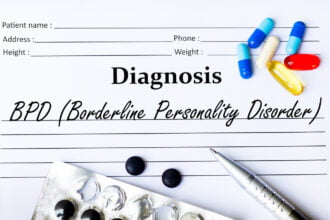Major depression is a common, serious mental illness. The major challenge facing sufferers and medical professionals is finding effective treatment options. For sufferers, another challenge is being understood with respect and humanity. That’s why when new treatment ideas are proposed, the human element is important. At times, this human element intersects with technology and medicine.
Major depression is a common, serious mental illness. The major challenge facing sufferers and medical professionals is finding effective treatment options. For sufferers, another challenge is being understood with respect and humanity. That’s why when new treatment ideas are proposed, the human element is important. At times, this human element intersects with technology and medicine. This is perhaps best demonstrated in the field of neurocounseling – a subset of neuroscience that combines EEG neurofeedback treatment with neurotherapy.
The idea is that physiological and behavioral symptoms stem from an underlying neurological and physiological disorder, and that this can be treated via neurofeedback. This has primarily been tested as a treatment for attention deficit hyperactivity disorder (ADHD), accomplished by simulating EEG modality to retrain functions of the brain.
Major depression is a disorder of the brain that is characterized typically by three symptoms:
Low or depressed mood
Loss of interest and enjoyment in nearly all activities
Fatigue and a general lack of energy
What you need to understand is that sufferers of depression often face chronic negative thoughts and emotions. These symptoms manifest in varying degrees of severity, yet overall an estimated 350 million individuals are affected by depression globally.
Negative stigmas represent a challenge that is one of the largest barriers to receiving treatment. The associated stereotypes and subsequent distancing do nothing to help the 60% of severe depression sufferers that go untreated. Stigma and embarrassment are the two most highly cited reasons for avoiding or ignoring treatment.
Depressed moods are associated with the reduced activation of the left prefrontal cortex, indicating to researchers that left frontal activation is an important aspect of mental wellness. Some research seems to indicate that the overactivation of the right prefrontal cortex can contribute to anxiety.
Neurotherapy uses EEG neurofeedback protocols to balance and support the frontal/prefrontal regions of the brain. This can then be combined with traditional psychological therapy to teach patients how to recognize and change negative thoughts and self-talk, and by extension change their neural connections to these thoughts and feelings. Neurocounseling represents a one-two punch treatment method for individuals caught in a loop of depression-based dysfunction.
Nicholette Leanza discussed this in 2012 by identifying that, “Remembering how personal and individual a person’s neural nets can be allows counselors to experiment in different sensory avenues such as art therapy, music, therapeutic stories, psychodrama and other creative techniques. Each of these avenues can help facilitate the process of engagement and provide interesting ways to stimulate the senses. This type of sensory input will engage the networks to be active and open to learning new information. Neurons that are repeatedly used grow stronger.”
She says, “The more these neurons fire, the more they send out new branches looking for fresh and useful connections. Neural networks are also flexible, meaning new experiences can be added to old ones and old ones can be blended with the new. As new and different networks fire, the brain will form new connections and will physically begin to change.”
This type of treatment is important because it can create a foundation for all other treatment methods. When the thoughts and beliefs of the patient are harmonized through with empathy and hope, focus can be turned to the chemical imbalance itself. In turn, this will increase the efficacy of treatment and reduce the stigma once and for all.








